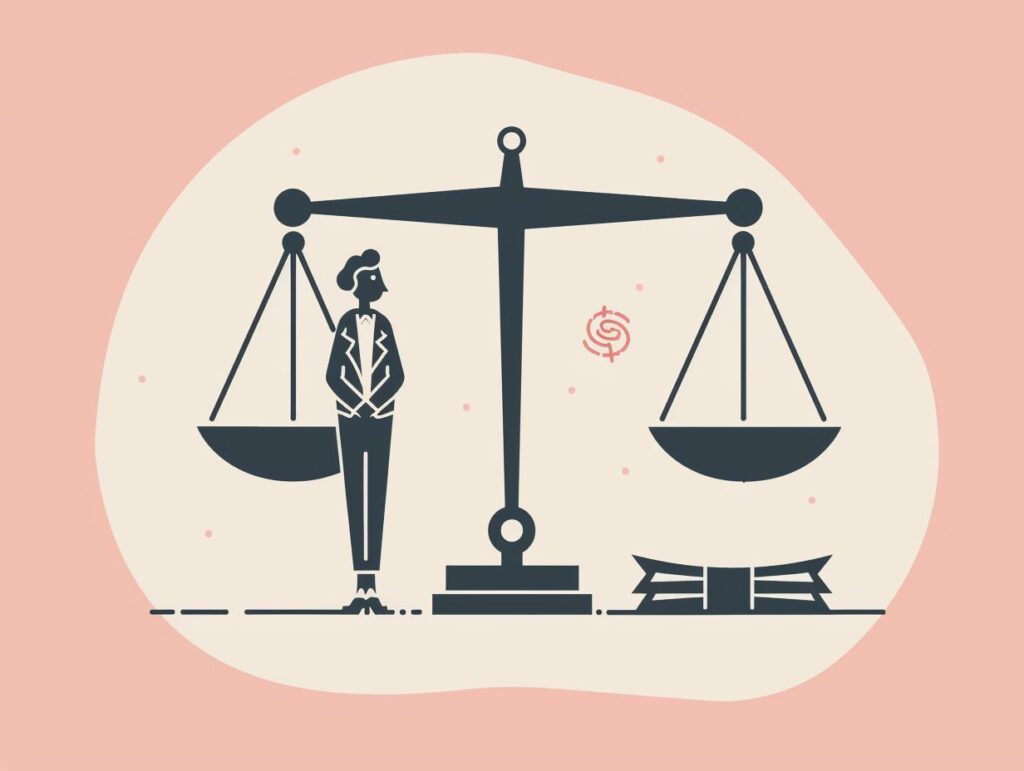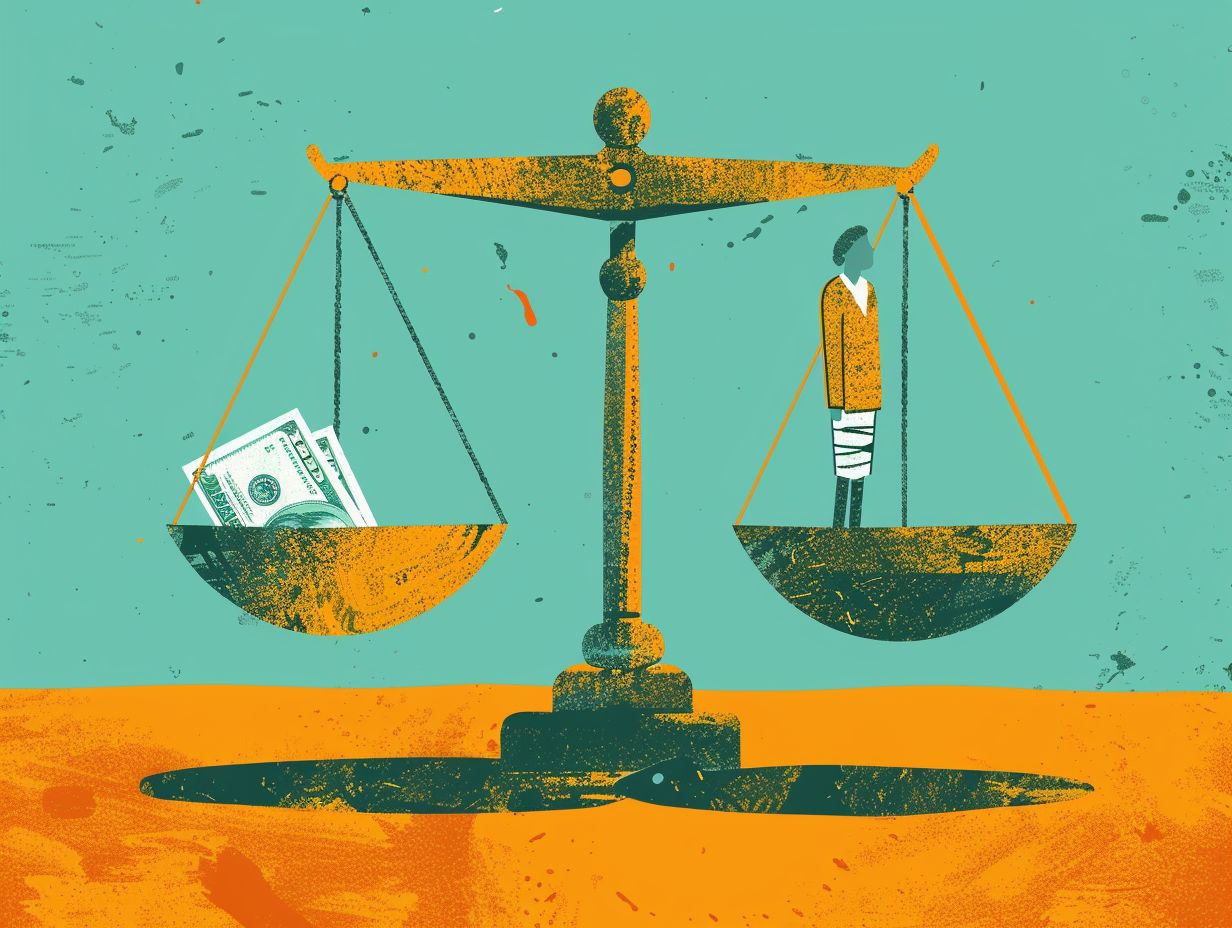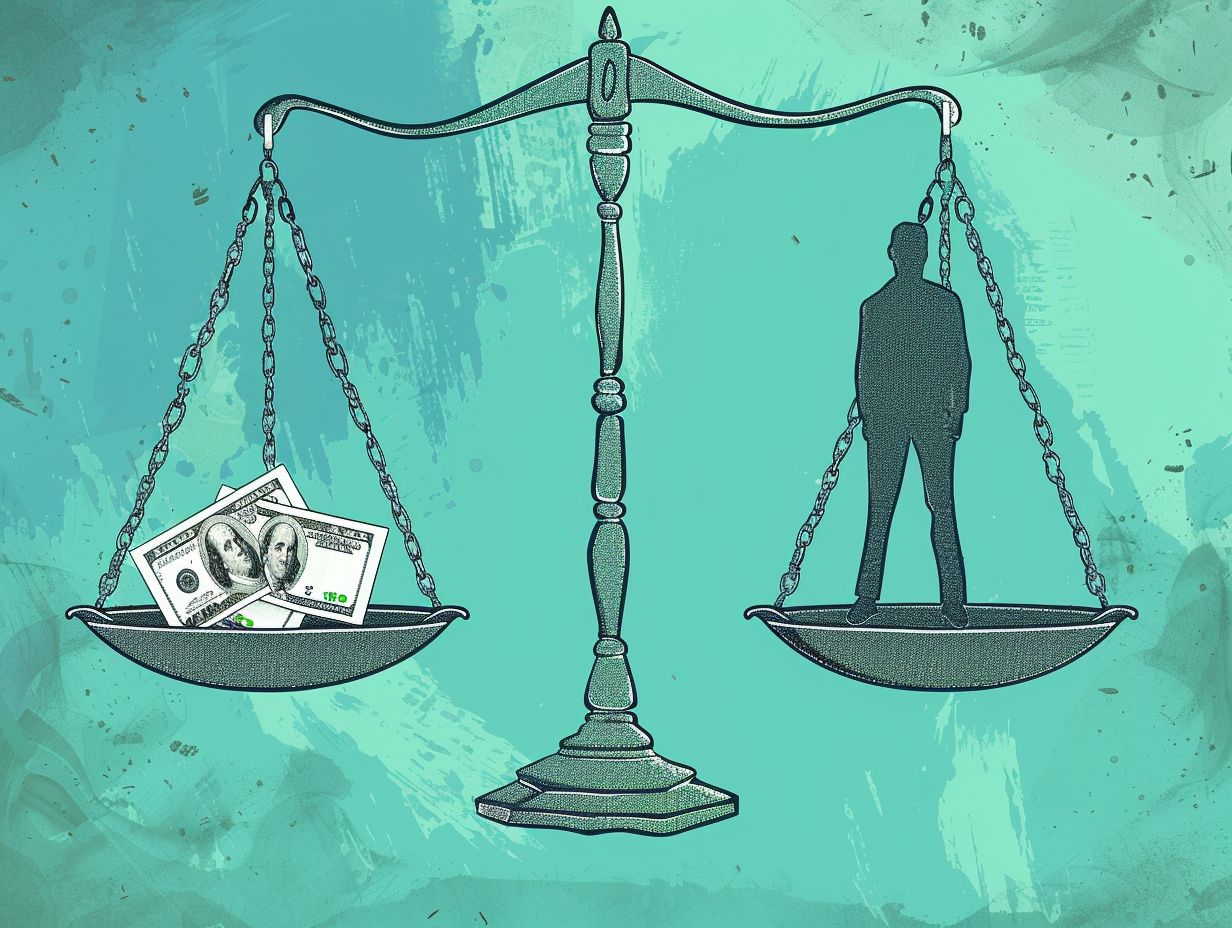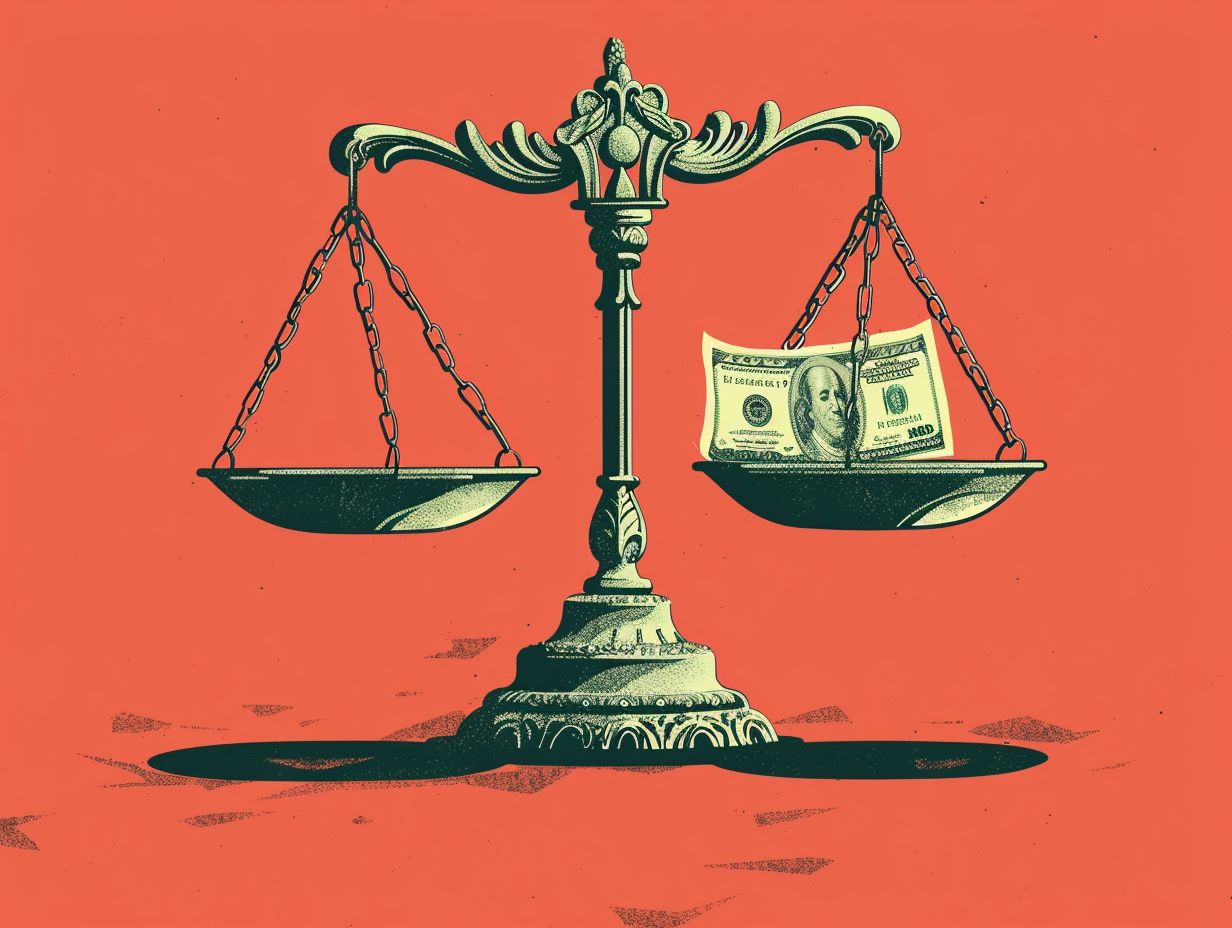If you’ve been injured in an accident in Florida, you may be wondering how lost wages could affect your personal injury case.
In this article, we’ll explore the importance of lost wages in personal injury cases, how they are calculated, and whether you can receive compensation for them.
We’ll also discuss other damages that may be included in a personal injury case and the factors that can impact lost wages.
Learn how an attorney can help you navigate the complexities of proving and recovering lost wages in your case.
How Do Lost Wages Affect A Personal Injury Case?
Lost wages are important in a personal injury case because they make up a substantial portion of the compensation sought by the injured party. Assessing the financial impact of lost income during the recovery period often involves financial experts and economists to ensure accuracy.
Can You Receive Compensation For Lost Wages In A Personal Injury Case?
Compensation for lost wages can be received in a personal injury case, and it is recommended to work with a Florida personal injury lawyer to navigate the process of filing insurance claims and ensuring all lost income is taken into account.
The initial step in seeking compensation for lost wages involves collecting all pertinent documentation, such as pay stubs, tax returns, and medical records that support the claim. The personal injury attorney in Florida will aid in evaluating the amount of income lost due to the injury.
Subsequently, the attorney will assist in filing a claim with the insurance company, negotiating on behalf of the individual to secure a just settlement. If the insurance company contests the claim or proposes an insufficient settlement, the attorney can escalate the matter to court to advocate for the individual’s rights and ensure proper compensation is received.
How Do You Prove Lost Wages In A Personal Injury Case?
Demonstrating lost wages in a personal injury case necessitates thorough documentation like medical records and work hours, along with expert testimony from financial professionals to authenticate the loss of income.
These financial experts are vital in providing reliable evidence of the financial consequences of the injury. They might assess tax returns, pay stubs, and employment records to determine the precise extent of wages lost because of the injury.
They can offer insights into potential future earnings that may have been impacted by the accident. Their testimony aids in substantiating the injured party’s request for compensation for the income they couldn’t earn due to the incident.
What Other Damages Can Be Included In A Personal Injury Case?
Besides lost wages, a personal injury case under Florida law may involve additional damages like medical expenses, property damage, pain and suffering, and emotional distress. These factors collectively contribute to the total compensation being pursued by the injured party.
1. Medical Expenses
Medical expenses are an essential aspect of a personal injury case, covering the expenses related to medical treatment and care. These costs are supported by detailed medical records to ensure appropriate compensation.
These expenses are a key factor in determining the compensation awarded to the injured party. It is crucial to maintain accurate and comprehensive medical records to document the injuries, treatment, and associated costs. This documentation serves as evidence in court to support the compensation claim.
In personal injury cases, medical expenses typically include hospital bills, medication costs, rehabilitation expenses, and other healthcare-related costs directly linked to the injury. Insurance companies and legal representatives carefully review these records to calculate the total reimbursement amount needed to cover the medical expenses.
2. Property Damage
Property damage in a personal injury case involves the costs associated with repairing or replacing damaged property and is usually addressed through insurance claims to ensure equitable compensation.
In these situations, claiming compensation for property damage entails collecting evidence like receipts, photographs, and repair estimates to support the incurred losses. Insurance companies are pivotal in determining the compensation amount by evaluating the damage’s extent and negotiating with the liable party or their insurance provider.
It is crucial for individuals filing a claim to be thorough in documenting the damage details to bolster their case and enhance their likelihood of receiving appropriate reimbursement.
3. Pain and Suffering
Pain and suffering are terms that describe the physical and emotional distress resulting from an injury, and compensation for this element in a personal injury case considers the effect on the victim’s quality of life.
In personal injury cases, the factors contributing to pain and suffering can vary significantly from person to person. These factors may include the seriousness of the injury, the duration of the pain, any required medical treatments, and the long-term impact on the victim’s emotional well-being.
Quantifying pain and suffering in such cases involves evaluating the level of physical discomfort and the enduring emotional effects on the victim. Emotional distress, closely linked to pain and suffering, can further complicate the recovery process and might necessitate specialized treatment for effective resolution.
4. Emotional Distress
Emotional distress in a personal injury case involves the psychological effects of an injury, and documenting this for compensation requires thorough record-keeping with medical records and expert testimony.
Establishing emotional distress in a legal context necessitates having substantial evidence to support claims. Alongside medical records, psychological assessments conducted by licensed professionals are typically needed to bolster a case. These assessments offer valuable insights into the level of emotional suffering endured by the individual.
Testimonies from witnesses such as friends, family, or colleagues who have observed changes in the individual’s behavior post-injury can also be vital in demonstrating the validity of emotional distress. All these documentation methods combine to present a comprehensive overview of the injury’s emotional impact on the individual.
What Factors Can Impact Lost Wages In A Personal Injury Case?
Various factors can influence lost wages in a personal injury case, such as the nature of employment, duration of recovery, pre-existing conditions, and work history. It is important to thoroughly assess these factors to determine fair and precise compensation.
1. Type of Employment
The calculation and compensation of lost wages in a personal injury case depend significantly on the individual’s employment status, whether they are salaried employees, hourly employees, or self-employed individuals.
Salaried employees typically have their lost wages determined by dividing their annual salary by the number of working days in a year. On the other hand, hourly employees may calculate lost wages by multiplying their hourly rate by the hours missed due to the injury.
Self-employed individuals face a more intricate calculation method, taking into account factors like average income, profits, and potential business losses directly impacted by their inability to work.
Each type of employment necessitates a distinct approach to quantifying and seeking compensation for lost wages in personal injury claims.
2. Length of Recovery Time
The length of recovery time directly impacts the total amount of lost wages, as extended recovery periods result in greater financial loss that must be accounted for in a personal injury case.
When individuals experience prolonged recovery periods due to their injuries, they may face challenges in returning to work promptly, leading to a significant reduction in their income. This reduction in earning capacity can have long-term implications on their financial stability.
The calculation of lost wages in personal injury cases becomes more complex when considering varying recovery times, as the duration of time away from work plays a crucial role in determining the compensation owed to the injured party. Attorneys and insurers must carefully assess these factors to ensure fair compensation is achieved for the injured individual.
3. Pre-existing Conditions
Pre-existing conditions can introduce complexity into the calculation of lost wages in a personal injury case. They can impact the injured party’s ability to work and require comprehensive medical records to distinguish the effects of the new injury from any existing issues.
In personal injury cases, pre-existing conditions play a significant role in determining the compensation awarded to the injured individual. These conditions are identified and documented through medical history and examinations to establish their contribution to the overall injury.
When evaluating lost wages, the interaction between pre-existing conditions and the new injury is critical. Accurately determining the impact of the recent injury on existing health conditions is essential for ensuring appropriate compensation for the individual’s work limitations. Documenting pre-existing conditions is crucial in presenting a clear picture of how the injury has affected the individual’s earning capacity.
4. Wage History
Income history is an essential factor in determining lost wages, serving as a reference point for calculating the earnings lost as a result of an injury and ensuring equitable compensation in a personal injury lawsuit.
By examining an individual’s previous income, encompassing salary, bonuses, and benefits, a clearer understanding of the financial repercussions of the injury on their income emerges. Thoroughly documenting this history is critical as it provides concrete proof of the income that would have been generated if the injury had not occurred.
This data is valuable in constructing a compelling argument for fair compensation in legal proceedings. A grasp of the intricacies of income history enables a more precise evaluation of future earning potential, significantly impacting the overall compensation process.
How Can An Attorney Help With Lost Wages In A Personal Injury Case?
A legal professional can be instrumental in assisting with the recovery of lost wages in a personal injury case. This involves tasks such as collecting evidence, negotiating with insurance companies, and providing representation in court. Specialized services are available from firms like The Law Place to help ensure fair compensation is received.
1. Gathering Evidence
An attorney plays a key role in gathering evidence to support a claim for lost wages. This evidence includes essential documentation such as medical records and employment documents, which are vital in building a strong case for compensation.
Along with medical and employment records, other types of evidence are crucial for proving lost wages in a personal injury claim. These may include pay stubs, tax returns, and expert testimony. The attorney’s responsibility is to compile these various pieces of evidence to bolster the case and demonstrate how the injury has affected the individual’s ability to work and generate income.
By presenting a comprehensive overview of the financial losses incurred, the attorney is instrumental in aiding the individual in obtaining the compensation they are entitled to for the wages lost due to the accident.
2. Negotiating with Insurance Companies
Attorneys have the expertise to negotiate with insurance companies to ensure that the evaluation and compensation for lost wages in your claim are fair. They utilize their skills to navigate the complexities of insurance claims effectively.
Throughout the negotiation process, attorneys diligently collect all relevant documentation, including medical records, pay stubs, and evidence of missed work days, to substantiate your claim for lost wages. This information is then used to construct a compelling case and present it convincingly to the insurance company.
By emphasizing the impact of your injuries on your ability to work and earn income, attorneys strive to secure a settlement that adequately addresses your financial losses and facilitates your recovery from the consequences of the personal injury.
3. Representing You in Court
If a personal injury case progresses to litigation, an attorney will serve as the representative in court, presenting evidence of lost wages and advocating for fair compensation.
During court proceedings, the attorney fulfills a crucial role in advocating for the individual. They carefully gather and organize documentary evidence, such as pay stubs and employment records, to support the claim for lost wages.
The attorney’s objective in presenting this evidence is to illustrate the financial consequences of the injury on the individual’s earning capacity. Through effective legal arguments and proficient communication, they aim to ensure that the judge or jury fully comprehend the scope of the economic losses and the necessity for equitable compensation.
Frequently Asked Questions
What is considered lost wages in a Florida personal injury case?
Lost wages in a Florida personal injury case refer to the income or earnings that you have missed out on due to your injury. This includes wages, bonuses, commissions, and other forms of income that you would have earned if not for the injury.
How does lost wages affect a Florida personal injury case?
Lost wages can significantly impact a Florida personal injury case as it is one of the main factors in determining the compensation you may receive. It represents the financial burden you have experienced due to your injury and can affect the overall settlement amount.
Can I recover lost wages in a Florida personal injury case?
Yes, you can recover lost wages in a Florida personal injury case. Your lawyer will work with you to gather evidence, such as pay stubs and statements from your employer, to prove the amount of income you have lost due to your injury.
What if I am self-employed, can I still claim lost wages in a Florida personal injury case?
Yes, as a self-employed individual, you can still claim lost wages in a Florida personal injury case. Your lawyer will work with you to gather evidence, such as tax returns, to demonstrate the impact of your injury on your business income.
Are there any limits to the amount of lost wages I can claim in a Florida personal injury case?
There are no specific limits on the amount of lost wages you can claim in a Florida personal injury case. However, this amount will depend on various factors, such as the severity of your injury, the length of time you were unable to work, and your pre-injury income.
What if I am permanently disabled and unable to work, can I still claim lost wages in a Florida personal injury case?
Yes, you can still claim lost wages in a Florida personal injury case if you are permanently disabled and unable to work. Your lawyer can help you calculate the future lost earnings you would have expected to earn if not for your injury and include it in your settlement demand.


























Rate this article:
Average rating 0 / 5. Vote count: 0
No votes so far! Be the first to rate this post.
No Comments yet!